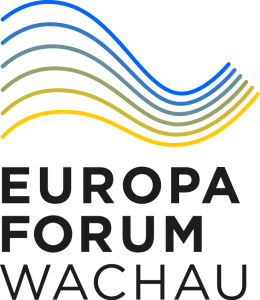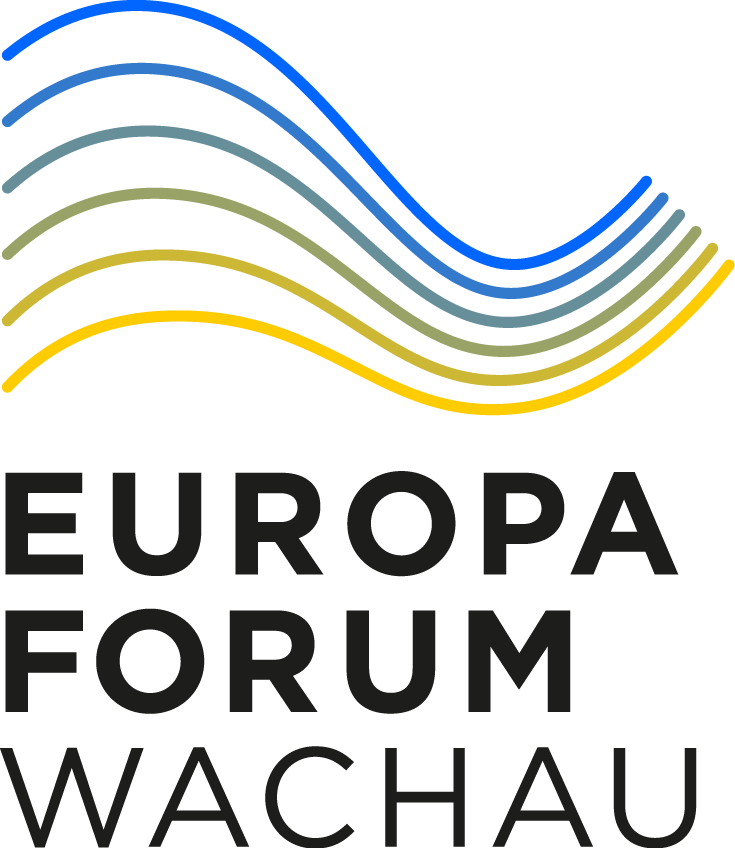LR Eichtinger: "People must be at the centre of progress!"
Yesterday, Martin Eichtinger, EU Provincial Councillor and EFW President, together with the Federation of Lower Austrian Industries, hosted the fourth salon of the Europa-Forum Wachau format at IMC FH Krems, where the topic of "Brave New Work: What's next? What is possible?" was discussed. Around 200 interested parties took part in the discussion led by moderator Hans-Peter Siebenhaar, Handelsblatt correspondent for Austria and south-east Europe and chairman of the foreign press in Vienna.
The panel guests Gerald Steiner (Dean at Danube University Krems), Bettina Paar (Head of Human Resources Development at Vienna Airport), Thomas Salzer (President of the Federation of Austrian Industries Lower Austria) and Michael Altrichter (Chairman of the Supervisory Board of startup300) contributed their expertise on the labour market of the future.
"Technological progress, which has become an integral part of the world of work and business as well as everyday life, offers enormous opportunities. Through innovation, new business models, new services or start-ups in the high-tech sector, high added value can be achieved, but also positive effects for the competitiveness of Lower Austria as a place to work," says EU and Labour Minister Eichtinger. "People must clearly be at the centre of this development. We have to take everyone with us - the young, through sound training, the working population, through the possibility of further education and retraining, and also the older generation, for whom lifelong learning has long been a reality rather than an empty phrase. This is the only way to realise the benefits of technological change."
"In the coming years, the greatest future demand for personnel is expected to be in precisely those areas where companies are already struggling with recruitment problems - namely in the fields of mathematics, IT, natural sciences and technology," says IV Lower Austria President Thomas Salzer, outlining the future training priorities. "That's why we need a 20 per cent increase in the number of graduates in these so-called STEM subjects in the medium term, at all levels of education. Because one thing is clear: we will no longer be the cheapest in international competition. And that is precisely why we need the best skilled workers."
Michael Altrichter emphasises that the foundations for this should already be laid in the early stages: "Today's world is more fast-moving than ever, so it is more important than ever to stay on the ball and keep up with technological advances. This also applies to developments on the labour market. That's why basic knowledge of the programming language should be learnt in schools like a second foreign language."
"Personnel and organisational development of the future will take on the role of consultant and advisor even more - accompanying the entire organisation, managers and employees and thus making a significant contribution to organisational culture development," says Bettina Paar, explaining the future in the area of personnel development.
"Current technological, social and natural developments have an impact on our entire lives and require a new awareness of the skills and innovation systems (habitats) required to deal with an increasingly complex future and how we can make our organisations, regions, nations and global societies fit for this future. This means that we must first and foremost develop a more appropriate understanding of our complex socio-technological and ecological systems and reinvent ourselves on this basis," says Gerald Steiner, describing the prerequisites for a "future-proof" society.
The salon in Krems is one of a total of six salons in the run-up to the main Europa Forum Wachau event, where the aim is to obtain citizens' opinions on current European political developments. Participants' decisions will be recorded and documented using a specially installed mobile phone online voting software. The next Salon Europa Forum Wachau will take place on 13 May 2019 in Waidhofen/Thaya on the topic of "Regionality".

